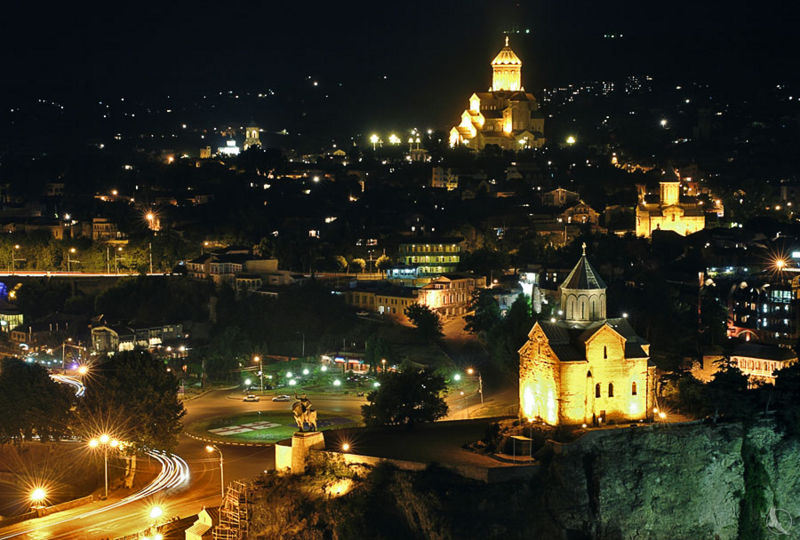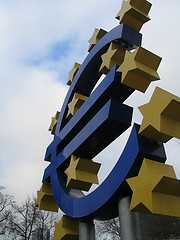
The Caucasus: A case of mistaken identity?
What matters more: who you think you are or who others think you are? Addressing a major gap in IR scholarship, the importance of identity in influencing state behaviour was first elucidated by writers within the Constructivist school of thought, most notable among whom was Alexander Wendt. In his seminal article “Anarchy is what states make of it”, Wendt draws attention to the significance of identity by employing the metaphor of “the looking-glass self”, arguing that states form identities of themselves through their interactions with other states: that “the self is a reflection of an actor’s socialization”(Wendt 1992:404). Such a theory seems to predict that a state’s identity and how others perceive it should bear correlation. How, then, do we …

We are going to win this thing the (new) old-fashioned way
May 5th, President Obama gave (basically identical) speeches in the swing states of Ohio and Virginia, officially providing the “campaign kickoff” for his re-election effort. The opening statement is interesting for how it frames the campaign, as well as for the substantial ask– I want to thank so many of our Neighborhood Team Leaders for being here today. You guys will be the backbone of this campaign. And I want the rest of you to join a team or become a leader yourself, because we are going to win this thing the old-fashioned way — door by door, block by block, neighborhood by neighborhood. This campaign is about people (that’s part of the framing). He wants you to join the …
‘Federalism’ in Libya: Already in the dustbin of History
In today’s Libya, local is king. Yet, if Libya is to become a functioning state governed by an elected leadership capable of empowering its citizens and providing an equitable distribution of its resource wealth, then, the interim government of the National Transitional Council (NTC) must become king. In the run-up to the June elections many militias and civil society organizations are lambasting the interim government’s mission to centralize authority rather than its lacklustre results at achieving that task. On March 5th, notables in Benghazi — Libya’s second city and capital of the Eastern region of Cyrenaica — proposed to compensate for the ineffectiveness of the central NTC authorities by asking them to relinquish certain powers to sub-state bodies such as …

Next steps for Romney?
It continues to look like Mitt Romney will be the Republican candidate for President in the fall. While he is still fighting a war of attrition with Rick Santorum, it will take a major game changer for him to lose the primary. So it is no surprise that he is increasingly orienting himself towards the general election. What can the course of the campaign so far tell us about the challenges Romney will face and how he will try to tackle them? The drawn-out primary has been a mixed blessing, forcing Romney to cater to a conservative base out of touch with many Americans, forcing him to spend time and money battling right-wing rivals when he would have preferred to …

The beginning of the debt crisis: Europe and beyond
Government debt is a burgeoning issue, but the solutions are thus far a damp squib. Despite claims otherwise, the debt crisis is not one that has been solved – not even partially. Recently, European leaders saluted an agreement on settling part of Greece’s outstanding debt– largely by canceling it. Yet, European governments have merely found a way to roll debt over, with debt levels scheduled to increase further, at least until 2016. Interest rates on government bonds should increase correspondingly – hence the rating agencies’ downgrades. Unless we encounter solid growth throughout Europe, we are heading toward further turmoil. Far from attempting to be pessimistic, I solely seek to reflect on the reality of the situation and what it may entail for the future. What leaders haven’t …

Slovakia’s election: another majority government from a proportional electoral system
On Saturday 10th March 2012, Slovakia joined the small but growing club of European countries that elected a majority government despite using a proportional representation system. The centre-left Smer party, led by Robert Fico, won 86 out of 150 seats with 44.9% of the vote. Although it was predicted that Smer would win the election, even Fico himself was surprised by the scale of the result. Since the eurozone crisis started to bite, strong anti-incumbency sentiments have regularly produced extreme results. In Hungary, Fidesz won more than a two-thirds majority in parliament in 2010 with 68% of the popular vote. In Scotland, a proportional electoral system unexpectedly produced a majority government in 2011, when the Scottish Nationalist Party (SNP) won 69 out of 129 seats with 45% of …

The Comeback kid: a new American television documentary looks back at Bill Clinton’s life
The American Public Broadcasting Corporation’s (PBS) new installment of The American Experience: the Presidents is a biography of the 42nd President, William Jefferson Clinton, that feels more like a drama than history. Clinton paints a picture of a highly improbable president, born famously into impoverished circumstances in Hope, Arkansas, with a father who died before his birth and an alcoholic stepfather who beat his mother in front of the children. Consequently, Clinton threw all of his efforts into his studies, laboring to redeem and rescue his family, and substituting a broken home life for his ersatz, carefully managed public persona at school. Such a stratagem recurs throughout Clinton’s life: when situations become tough, Clinton pretends as though they are not happening. Unfortunately …

Nothing “super” about Super Tuesday
Super Tuesday came and went, and I’m not sure people in the ten states involved felt it was all that “super”. Despite some Republican party activists asserting this is the most important presidential election since George Washington was elected (no, really), voter turnout in several cases was lower than in the 2008 Republican Primary. Many of those who did vote were not enthusiastic about any of the candidates running. According to the Washington Post, “Barely more than four out of 10 voters in Ohio said they were strongly behind their candidate, according to exit polls”. And people aren’t enjoying the spectacle of the campaign itself either—the New York Times quotes a couple from Ohio complaining about the “barrage of ads” …









